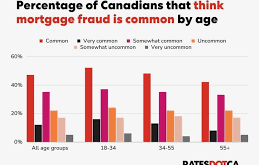House Mortgage Requirements:Guide for Homebuyers
Securing a mortgage is a crucial step in purchasing a home, and understanding the requirements can make the process smoother. This guide will outline essential house mortgage requirements, including credit scores, down payments, and more, to help you navigate your home buying journey effectively.
1. Basics of a Mortgage
- What is a Mortgage?
- Definition and Function
- Types of Mortgages
- Fixed-Rate Mortgages
- Adjustable-Rate Mortgages (ARMs)
- FHA Loans
- VA Loans
- How Mortgages Work
- Repayment Terms
- Interest Rates
2. Credit Score Requirements
- Importance of Your Credit Score
- How It Affects Your Mortgage
- Minimum Credit Scores for Various Loans
- Conventional Loans
- FHA Loans
- VA Loans
- Improving Your Credit Score
- Tips and Strategies
3. Down Payment Requirements
- Typical Down Payment Amounts
- Standard Percentages
- Factors Influencing Down Payment
- Loan Type and Lender Requirements
- Assistance Programs for Down Payments
- First-Time Homebuyer Programs
- Government and Local Assistance
4. Debt-to-Income Ratio
- Understanding Debt-to-Income Ratio
- Definition and Calculation
- Why It Matters
- Impact on Loan Approval
- Acceptable Ratios
- Guidelines for Different Loans
5. Employment and Income Verification
- Required Documentation
- What You Need to Provide
- Lender Evaluation
- How Lenders Assess Your Employment and Income
- Self-Employment Considerations
- Additional Documentation and Tips
6. Property Requirements
- Eligible Property Types
- What Can Be Financed
- Appraisal and Inspection
- Importance and Process
- Eligibility Conditions
- What Properties Need to Meet
7. Mortgage Pre-Approval
- Pre-Approval Process
- Steps and Requirements
- Benefits of Pre-Approval
- Advantages in Home Buying
- Documents for Pre-Approval
- What You Need to Provide
8. Final Mortgage Application
- Final Application Documentation
- What to Prepare
- Application Preparation Tips
- How to Strengthen Your Application
- Common Pitfalls
- Mistakes to Avoid
9. Closing Costs and Fees
- Typical Closing Costs
- Breakdown of Expenses
- Estimating and Preparing
- How to Budget for Closing Costs
- Negotiating Costs
- Tips for Reducing Fees
10. Tips for a Successful Mortgage Application
- Organize Your Financial Documents
- Maintain a Good Credit Score
- Save Adequately for a Down Payment
- Get Pre-Approved
- Shop for the Best Rates
- Understand Mortgage Terms
- Consider Using a Mortgage Broker
- Avoid Major Purchases Before Closing
- Communicate Regularly with Your Lender
- Review Your Closing Disclosure Thoroughly
FAQs
- What is the minimum credit score needed for a mortgage?
- The minimum credit score varies by loan type: 620 for conventional loans, and as low as 580 for FHA loans.
- How much should I save for a down payment?
- While 20% is traditional, many loans allow lower down payments, sometimes as little as 3%.
- What is a debt-to-income ratio and its importance?
- This ratio measures your monthly debt payments against your income and is crucial for loan approval.
- What documents are required for a mortgage application?
- Typically includes proof of income, tax returns, bank statements, and details of existing debts.
- How is pre-qualification different from pre-approval?
- Pre-qualification is a preliminary estimate, while pre-approval involves a thorough review and is more reliable.
- Can self-employed individuals get a mortgage?
- Yes, but they need to provide additional documentation like tax returns and proof of income.
- What are closing costs and how much should I expect?
- Closing costs are fees associated with finalizing the mortgage, usually 2% to 5% of the loan amount.
- How can I improve my credit score before applying?
- Strategies include paying down debt, making timely payments, and correcting any errors on your credit report.
- What types of properties are eligible for a mortgage?
- Most residential properties are eligible, but specific criteria may apply depending on the lender and loan type.
- How long does the mortgage application process take?
- It generally takes 30 to 45 days from application to closing, depending on various factors.
Conclusion
Understanding and meeting house mortgage requirements is essential for a smooth home buying process. By familiarizing yourself with credit scores, down payments, and other key factors, you can improve your chances of securing a mortgage and making informed decisions.
In conclusion, thorough preparation and awareness of mortgage requirements will help you navigate the homebuying process more effectively. With the right information and strategies, you can approach your mortgage application with confidence and secure the financing needed for your new home.
Related Posts:
- Conventional House Mortgage: Guide to Traditional Home Loans
- Mortgage Loan Guidelines: Everything You Need to Know
- FHA House Mortgage: Everything You Need to Know
- Jumbo House Mortgage:Know and How to Get the Best Deal
- House Mortgage Credit Score Requirements:You Need to Know
- FHA vs Conventional House Mortgage: Which is Right for You?
 mortgage.kbk.news
mortgage.kbk.news
